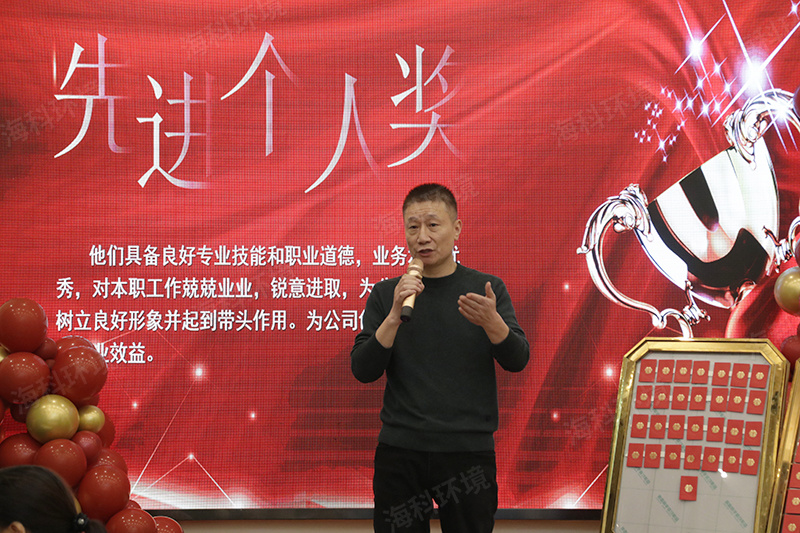ENERGY SAVING AND ENVIRONMENTAL PROTECTION EQUIPMENT AND ENGINEERING GENERAL CONTRACTING
Understanding Industrial Bag Filters: Key Components and Benefits for Air Quality Management
2025-08-07
Industrial bag filters play a vital role in air quality management across various industrial applications. These filters are designed to capture airborne particles, including dust, smoke, and other pollutants, ensuring that the air released back into the environment meets safety and health standards. By implementing effective dust collection systems, industries can significantly reduce the environ
Industrial bag filters play a vital role in air quality management across various industrial applications. These filters are designed to capture airborne particles, including dust, smoke, and other pollutants, ensuring that the air released back into the environment meets safety and health standards. By implementing effective dust collection systems, industries can significantly reduce the environmental impact of their operations while enhancing the health and safety of their workforce.
At the core of an industrial bag filter is its filter media, which can vary in material depending on the application requirements. Common materials include polyester, polypropylene, and fiberglass, each offering unique properties that determine efficiency, durability, and resistance to different types of contaminants. The choice of filter media is essential, as it influences not only the filtration efficiency but also the maintenance intervals and overall operational costs.
The design of industrial bag filters often incorporates multiple bags housed in a filter chamber, allowing for high-volume air processing. This multi-bag system enables effective dust capture while maintaining low pressure drop, which is crucial for energy efficiency. Additionally, many modern bag filter systems feature automated cleaning mechanisms, such as pulse jet or shaker systems, to maintain optimal performance without frequent manual intervention. This automation not only enhances efficiency but also minimizes operational downtime.
One of the primary benefits of utilizing industrial bag filters is their contribution to compliance with air quality regulations. Industries are increasingly held accountable for the pollutants they emit, and effective dust collection systems help meet regulatory standards. Furthermore, maintaining air quality is essential for employee welfare, as prolonged exposure to airborne contaminants can lead to serious health issues. Therefore, investing in a reliable bag filter system not only protects the environment but also fosters a healthier workplace.
Another advantage of industrial bag filters is their versatility. They can be customized to suit various applications, from manufacturing and woodworking to food processing and pharmaceuticals. This adaptability makes them an essential component in any industrial dust collection system, allowing industries to tailor solutions to their specific needs.
In conclusion, industrial bag filters are indispensable tools for managing air quality in industrial environments. By understanding their components, operational mechanisms, and benefits, industries can make informed decisions to enhance their dust collection systems. The investment in high-quality bag filters not only ensures compliance with regulations but also promotes a safer and healthier working environment for employees, ultimately leading to improved operational efficiency and sustainability.
At the core of an industrial bag filter is its filter media, which can vary in material depending on the application requirements. Common materials include polyester, polypropylene, and fiberglass, each offering unique properties that determine efficiency, durability, and resistance to different types of contaminants. The choice of filter media is essential, as it influences not only the filtration efficiency but also the maintenance intervals and overall operational costs.
The design of industrial bag filters often incorporates multiple bags housed in a filter chamber, allowing for high-volume air processing. This multi-bag system enables effective dust capture while maintaining low pressure drop, which is crucial for energy efficiency. Additionally, many modern bag filter systems feature automated cleaning mechanisms, such as pulse jet or shaker systems, to maintain optimal performance without frequent manual intervention. This automation not only enhances efficiency but also minimizes operational downtime.
One of the primary benefits of utilizing industrial bag filters is their contribution to compliance with air quality regulations. Industries are increasingly held accountable for the pollutants they emit, and effective dust collection systems help meet regulatory standards. Furthermore, maintaining air quality is essential for employee welfare, as prolonged exposure to airborne contaminants can lead to serious health issues. Therefore, investing in a reliable bag filter system not only protects the environment but also fosters a healthier workplace.
Another advantage of industrial bag filters is their versatility. They can be customized to suit various applications, from manufacturing and woodworking to food processing and pharmaceuticals. This adaptability makes them an essential component in any industrial dust collection system, allowing industries to tailor solutions to their specific needs.
In conclusion, industrial bag filters are indispensable tools for managing air quality in industrial environments. By understanding their components, operational mechanisms, and benefits, industries can make informed decisions to enhance their dust collection systems. The investment in high-quality bag filters not only ensures compliance with regulations but also promotes a safer and healthier working environment for employees, ultimately leading to improved operational efficiency and sustainability.
Industrial bag filter
RELEVANT INFORMATION
The 2023 Annual Meeting of Jiangsu Haike Environmental Technology Engineering Co., Ltd
2024-01-08
The 2023 Annual Meeting of Jiangsu Haike Environmental Technology Engineering Co., Ltd


 English
English Русский
Русский بالعربية
بالعربية

